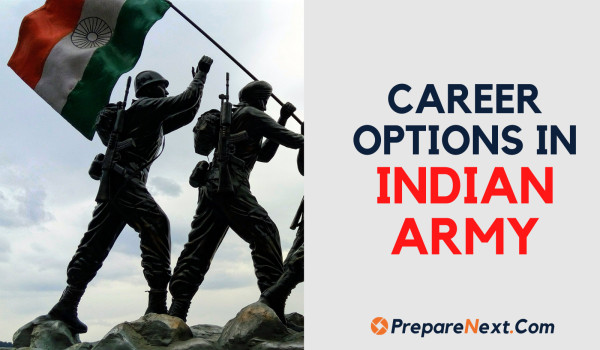Are You Eligible To Appear For The Civil Services Examination?

As discussed in our previous posts there are in total 24 civil services for which one can apply through the UPSC exam. But it is important to note that there are slight differences in eligibility criteria. As per the latest UPSC notification below are criteria that candidates must fulfill to appear for the civil services examination.
Nationality: It is one of the important eligibility criteria that one must confer to before applying for the exam. For candidates applying for IAS or IPS, they must be a citizen of India. For all the other 22 services if the candidate is not a citizen of India, they can be one of the following;
- A Citizen of Nepal or Bhutan
- A Tibetan Refugee settled in India before January 1, 1962.
- Candidate with an Indian origin and has migrated from countries like Burma, Sri Lanka, Pakistan, Zambia, Malawi, Zaire, East African countries of Kenya, Uganda, the United Republic of Tanzania,, the, etc van also apply. But they must migrate to India with the intention of permanent settlement.
- A citizen of Nepal and Bhutan or a Tibetan refugee does not have the eligibility to appear for the Indian Foreign Services.
Age Limit: In general the minimum age limit for the candidates appearing for the exam is 21 while the maximum is 32 years. But one must also take into account there are certain variations depending upon the caste reservations.
- For OBC the upper limit is 35 while for SC and ST it is 37 years.
- Defense Services personnel disabled in operations during hostilities have an upper age limit of 40.
- For domiciles of J&K born between January 1, 1980, to December 31, 1989, the limit is 32 years.
- Ex-Servicemen, ECOs/SSCOs and Commissioned officers have an upper limit of 32 years. Check out for more information on the same on the UPSC website.
- Lastly, for the PwD candidates, the age limit is 37 years.
Educational Qualification: The following checklist will help understand the minimum educational qualification required to appear for UPSC. The candidates must fulfill at least one of the below criteria.
- A degree issued by a Central, State, Private, or a Deemed University.
- A degree from a foreign university subjected to it being recognized by the Association of Indian Universities.
- Degrees are obtained through correspondence/distance education or from an open university.
- Any other degree that is termed as equivalent to one of the above by the government of India.
- Final year students awaiting their results are also eligible to appear for the exam.
- Candidates who have passed the MBBS final exam but have not completed the internship.
- Candidates who have cleared the final exam of ICAI, ICSI, and ICWAI can also apply.
Number Of Attempts: The number of attempts a candidate can take to appear for the exam is in no way related to age. There are certain pre-defined parameters defined by the board that candidates must adhere to.
- The general category students are allowed to take 6 attempts before they attain the maximum age limit of 32.
- For the OBC category, the number of attempts allowed is 9 till 35 years of age.
- The SC/ST candidates are allowed to take unlimited attempts until 37 years of age.
As a rule of thumb the if a candidate appears for the preliminary exam it is counted as the first attempt. However, in a scenario where the candidate has applied for the exam but has not appeared on the date of examination, it is not counted as an attempt.

Career Options In Indian Army | Indian Army
An Indian Army career is a great choice for those who are passionate about serving the nation and wish to contribute to maintaining national peace. The Indian Army's main objective is to maintain national security by defending the country from external threats. Among its seven commands are Eastern, Western, Northern, Central, Southern, South-Western, and Training Command.

The Indian Education System | Education System | Career Advice
Gurukula was a system of education in ancient times, in which students were taught at the homes of teachers. After becoming a student of the guru he would live at the guru's house and help him with all household chores.

What is an Internship and How Does it Work | Internship
The internship is the first step towards your career which is a professional learning experience that offers meaningful, practical work related to a student’s field.

Career Options in Ceramic Engineering | Ceramic Engineering
Objects made from inorganic and non-metallic materials are called ceramics. Using ceramic engineering, these objects can be molded and designed. The principles of ceramic engineering combine chemistry, physics, and engineering. Examples of ceramic sciences applied to everyday life include fiber-optic devices, microprocessors, and solar panels

Career Opportunities in Structural Engineering | Structural Engineering
Structural engineering focuses on ensuring a building's structural integrity and strength. It is the discipline of civil engineering that ensures structures are sturdy, safe, and won't collapse under the weight of their loads.

Career Options in Agricultural Engineering | Agricultural Engineering
Agriculture engineers are also called biological engineers. In addition to finding solutions to agricultural problems and meeting people's agricultural demands, agriculture engineers design and develop new farming techniques and equipment that make farming safer, more sustainable, and more environmentally friendly.

Careers in Plastic Technology | Plastic Technology
Plastic technology is a specialized area of study that involves the study of different types of chemicals that exhibit plastic properties. Furthermore, it involves the study of several methods by which plastics can be used in human life.

Careers in Rubber Technology | Rubber Technology
The rubber technology field consists of the processing of natural rubber, latex, or synthetic rubber and converting them into useful products. Rubber is a commercially important material used for various purposes.

Career Options in Textile Engineering
Textile designers create designs for knitted, woven, and mixed fabrics. ... It is their job to study various fabrics and understand dye compositions.Additionally, they generally specialize in knitting, weaving, or mixed fabrics
